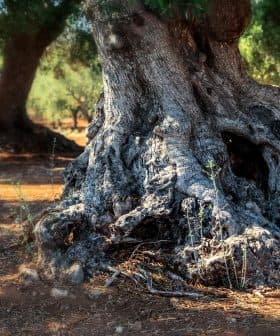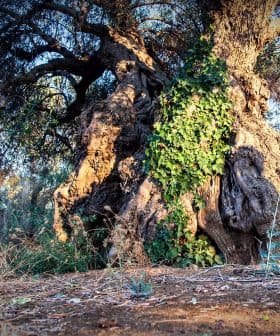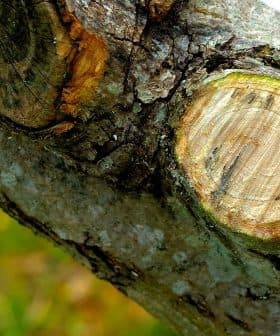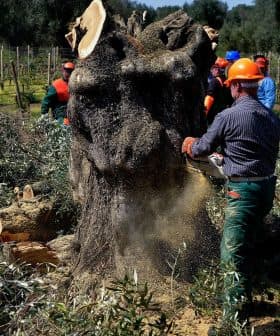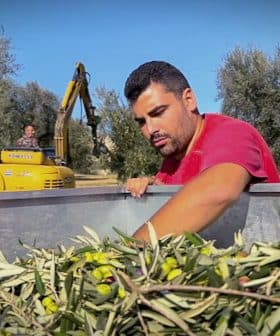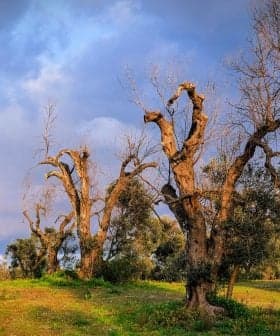Aerial Scan May Identify and Save Infected Olive Trees
Novel technology involving flying cameras offers hope in the fight against a pathogenic threat to olive trees.
A new imaging method using drones or planes can detect olive trees infected with a dangerous bacterium before symptoms appear, potentially saving iconic trees in southern Europe. The study found that the scan accurately identifies Xylella-infected olive trees with over 80 percent accuracy, offering hope for early detection and control of the pathogen’s spread.
Research finds that a remote type of imaging method can scan orchards and pinpoint olive trees infected with a dangerous bacterium before symptoms appear. The scan, which is put in a drone or plane, has special cameras that identify subtle changes in leaf color that aren’t detectable to the naked eye. It could be a significant help in stemming the spread of infection and saving iconic trees in southern Europe.
The effects of the bacterial infection can be remotely detected before any visible symptoms appear, allowing for rapid and accurate mapping of Xylella-infected olive trees across target orchards.
Xylella fastidiosa (Xf) is a dangerous bacterium that can cause disease in more than 350 plants. The pathogen has infected elm, oak, sycamore, almond and citrus trees, but olive trees are particularly susceptible. Signs in infected olive trees include leaves that appear scorched, along with withered branches and twigs.
While Xf has long plagued the Americas, in recent years, it has spread to Asia and European countries bordering the Mediterranean Sea. It’s responsible for the destruction of many olive orchards in the Apulia region of Italy.
The pathogen has no cure. Culling infected trees is the only way to stop the spread to healthy trees. The problem is that once trees are infected, they may show no symptoms for up to a year, during which time common sap-feeding insects may be transmitting the infection. Therefore, early detection is vitally important for its eradication.
In the study, Pablo Zarco-Tejada of the European Commission worked with experts from Swansea University and other European institutions. They put the cameras onboard a small plane to take images of orchards and afterward tested the olive trees for infection with Xf.
“Our study found that the effects of the bacterial infection can be remotely detected before any visible symptoms appear, allowing for rapid and accurate mapping of Xylella-infected olive trees across target orchards,” said co-author Peter North.
“The spread of plant diseases is predicted to become an increasing problem with climate change, including for the UK. International cooperation is essential for early detection, to control damage and prevent spread. This study demonstrates the possibility of detection of symptoms at an early stage, and may be adapted to drones and aircraft for widespread use,” said coauthor Rocio Hernandez-Clemente.
As the airborne scan identified infected olive trees with greater than 80 percent accuracy, it promises to be a valuable aid in helping other plants affected by Xf. Because the pathogen is viewed as a profound threat to plants around the world, the discovery of the novel technique is most welcome news to olive growers and other segments of the agriculture industry. Plans are in the works to try the scan on almond groves in Spain and vineyards in Mallorca soon.
The study was published in the journal Nature Plants.


